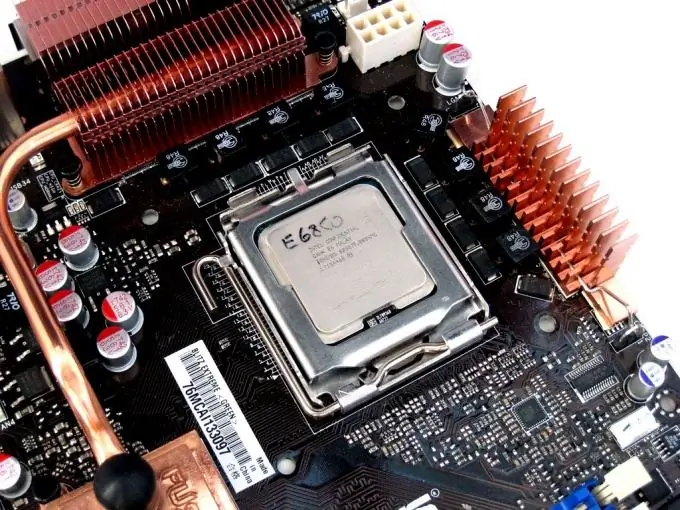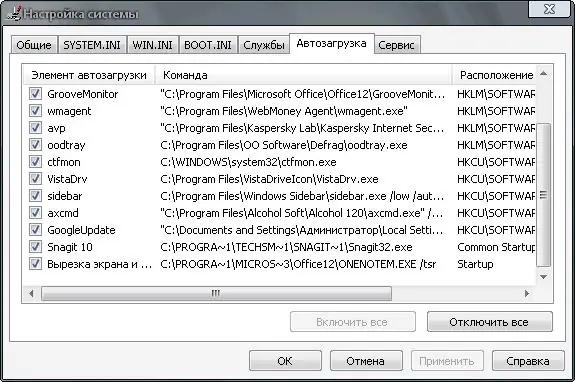Basically, the load on the CPU is caused by the inclusion of an application, and from this system resources are directed to the task. The processor load is increasing and by turning on the task manager, we can see how much it has grown. At 100% load, the computer starts to freeze, applications run slowly, and sometimes only a restart can save. Let's take a look at the main reasons for CPU utilization and how to solve this problem

It is necessary
- A computer
- Task manager program
Instructions
Step 1
A large load on the CPU goes on when the computer is turned on, the system boots and the desktop. Therefore, when the desktop appears, you can notice how slowly antivirus applications, gadgets, possibly a browser and local programs turn on. It all depends on the personality of the user, and what programs he uses. To solve this problem, you need to know the configuration of the processor and RAM. This can be done by right-clicking on My Computer and selecting Properties. After all, if the processor is weak, and it has 512 megabytes of RAM, then freezing and braking are not surprising. Therefore, it is worth turning to the autoloader, an application that is responsible for loading certain programs when the system is turned on. If you do not use the Alcohol program, then there is no point in its autoloading. Click Start - Run - msconfig, a dialog box opens, in which we select the startup tab. We see items marked with checkmarks that are loaded along with the system. You can see the names of the program and their path, so we uncheck the boxes for those services that are not needed, click OK.

Step 2
The next point is to load applications or games that are causing the CPU to load. Again, you need to pay attention to the hardware configuration, whether there was such a thing before. Check your computer for viruses. When launching games, turn off applications that require a lot of resources. They can be browsers, chats, players. Reinstallation of the system can become a possible but radical solution. You can also disassemble the system unit and see if dust has accumulated. Sometimes CPU load can be caused by poor heat dissipation due to clogging of the cooler or parts of the processor (heat sink). Try changing the thermal grease on your processor. If all else fails, then try changing processors, borrowing from friends and looking at the behavior of the system, and if this is the case, then buy a more powerful processor.






